
Listening to Music: The Ultimate Guide
Music is perhaps one of the few things that we can consider universal. Lou Rawls sure was spot on when he said:
"Music is the greatest communication in the world. Even if people don't understand the language that you're singing in, they still know good music when they hear it."
As far as anyone can tell, almost every culture has one form or another of expressing musical notes or singing.
Clearly this is a fundamental part of each person. It is even more noticeable than ever as people are now able to take their music with them wherever they go.

If you want to listen to music like a true connoisseur, then this is the guide for you. It will tell you everything you should know about appreciating music best.
Why You Should Listen to Music
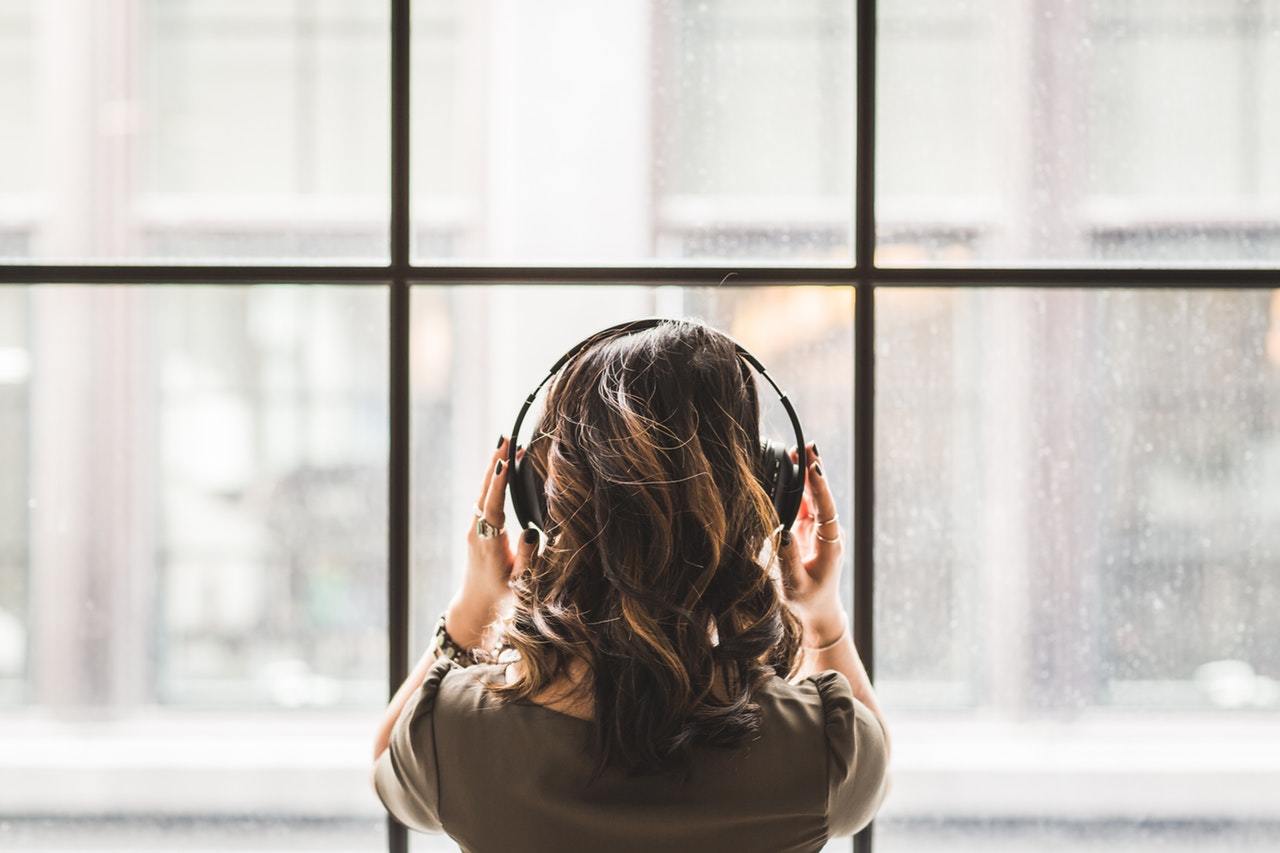
Most people don’t really need a reason to listen to music.
However, it is interesting to see whether or not there are positive effects experienced whenever you do turn your favorite tune on.
Well, the good news is that there are many positive effects reported from listening to music – here are just a few of them:
It Can Help with Your Mood
It often seems that, regardless of what you are feeling, you always turn to music.
Well, there is some compelling evidence that this can do you a world of good, even if you are listening to sad songs.
If you are tuned into a real tear-jerker to get over a breakup or just to work through a bad day, you are actually helping to make yourself feel better.
Sad songs tend to act as emotional support, letting you work through your emotions and emerge on the other side more settled.
Upbeat music, too, is great for boosting your mood. It can help you to unwind, get in a better mood, or just enhance a good one.
It Can Improve Your Health
While it is widely known that music can help to reduce the amount of stress that you experience, most people don’t think of what this means.
Not only does your favorite tune help you to feel calmer, it actually has a positive physical effect on your body too.
Check this out:
Certain genres of music cause a (healthy) drop in heart rate and breathing rate and prevent your heart from working overtime.
There is also a drop in cortisol levels, which prevents numerous stress-related conditions including depression, tiredness, poor memory, and weight gain.
There are also studies that have been conducted suggesting that music can help to boost your immune system and ward off many illnesses.
Music Can Aid in Concentration
If you are trying to get some work done or are studying for an exam, music could be the key.
It can help you to concentrate on the task at hand for longer periods of time and help you to retain whatever it is that you are learning.
And get this:
Music may also help individuals who have experienced memory loss by improving their attention span and overall functioning.
It May Reduce Pain and Reduce Healing Time
In several research studies, people who listen to music have reported feeling lower levels of pain, even when it is associated with surgery or a medical condition.
Not only that, but plugging in your favorite tunes can also help to reduce the time that it takes you to heal as well.
You May Be Able to Sleep Better
Who wouldn’t like to get more Zs if they could?
And considering just how many people suffer from mild or severe insomnia, a solution is important.
Well, listening to music a short while before going to bed could help you to sleep more deeply and perhaps even for a longer period of time.
Why You Shouldn’t Listen to Music

Clearly there are a lot of advantages in turning on the radio or plugging in your headphones.
This begs the question, is there a flipside as well? Can listening to music be bad for you on some level?
Here, we look at some of the negative aspects of tuning in to melodies and whether they have any merit:
Loud Music Equals Hearing Loss
There is actually a lot of medical research to support the notion that listening to loud music for too long can actually reduce your hearing abilities.
Many individuals listen to music while traveling to block out the noise from other vehicles or traffic.
This means that they are listening to music at a high volume, much higher than is safe.
Continuing to do this could result in long term damage such as muffled hearing or a constant ringing in the ear.
To err on the side of caution, you should be listening to music that is far less than 85 decibels.
Even then, you should be taking a break every hour or so rather than listening to music all day
The Link Between Music and Negative Behaviors
There has always been a lot of discussion about how certain types of music or artists may be causing the spread of violent behavior or promoting dangerous activities.
It is a little difficult to conclusively prove this as there have been so few studies carried out on the subject.
However, there has been some evidence regarding lyrics and how they can result in aggression, drinking, and drug use.
A Drop in Safety
Sometimes, listening to music – especially at a loud level – can make you oblivious to other sounds and noises. This can be dangerous if you are a pedestrian or jogger.
By not being able to hear vehicles or horns, pedestrians have put themselves in harm’s way.
The same can be said for drivers as well. Listening to music in cars may be causing people to tune out and not pay as much attention to their driving or other drivers.
Also, certain types of music could be leading to faster, more aggressive driving, which results in more car accidents.
How Music Affects Society and Culture

There is a lot to be said about how music affects society and culture, and even vice versa.
There are many reasons that music is such a global concept, why it is ingrained in so many cultures.
Think about it.
Music has been used as a form of celebration – to be played at feasts, weddings, and festivals.
It has also been used as an instrument of war where it warns villages of an enemy’s impending arrival or as a tool of psychological warfare.
It also contains lessons, morals, and grains of wisdom that need to be passed down from generation to generation.
If you listen closely, most traditional songs have something that they want to teach, some wisdom that the lyrics are trying to impart.
Even the Iliad, with its rhythmic chanting, was used as a tool to teach the youth about war.
Popular Music in Society and Culture
Over the years, music has also been used as a widespread message of what the general public was feeling.
For instance, the Beatles and the Rolling Stones ushered in a new dawn, where the old, polite rules of society were ignored, making way for the more rebellious youth.
On a social note, Billie Holiday caused a stir when she sang a version of ‘Strange Fruit’ which spoke of the lynching faced by the African Americans, particularly in the South.
Nina Simone took up a similar position when she sang songs like ‘I Wish I Knew How It Would Feel to Be Free’.
Even Bob Dylan picked up his guitar for the civil rights movement with ‘Only a Pawn in Their Game’.
Then there have been musicians like Woody Guthrie and John Lennon who have spoken about the inequalities between classes and taken a swing at political regimes.
There is no denying that music plays a large role in culture and will continue to do so.
Regardless of the year or the generation, scores of people will use their songs to celebrate, wage war, and to make a statement. Some things will not change.
Listening to Music at Work
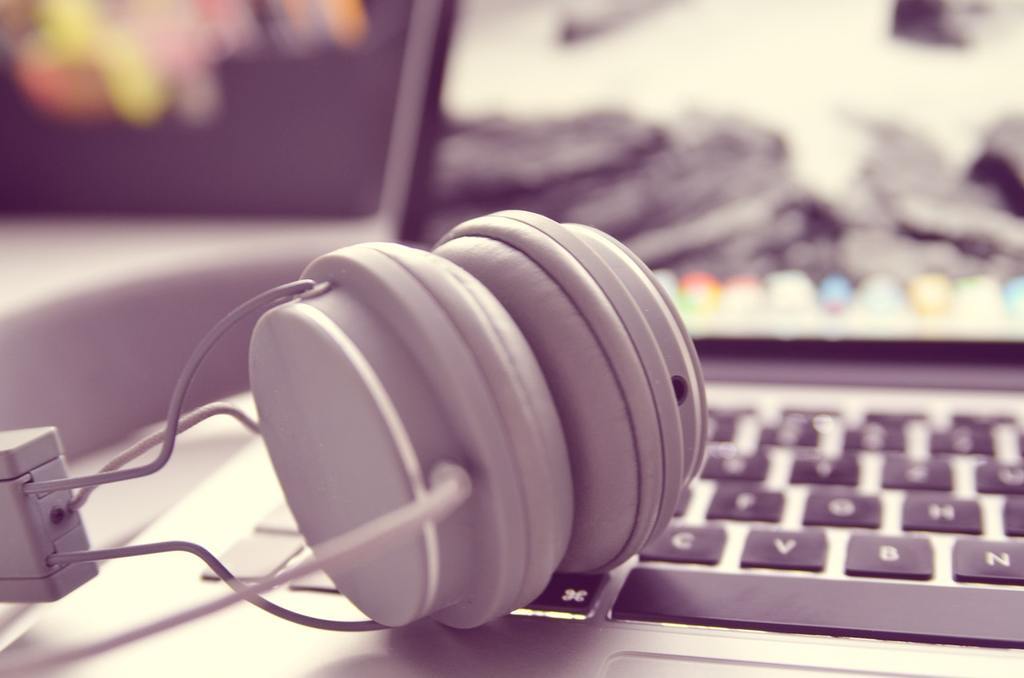
It is becoming more commonplace to listen to music at work.
As job types change and company cultures evolve, it is no longer considered rude to plug in a pair of earphones and continue with your work.
While this is becoming the norm, there are some questions about whether this is helpful or disruptive.
Let’s take a closer look:
When Music Doesn’t Help
If you are trying to learn something new, it is a good idea to take out those headphones and just focus on your work.
What many people forget is auditory processing requires your brain to work. So, when you add learning to the to-do list, your brain is forced to multi-task.
This means that you can remember facts improperly or not absorb as much as you should within that period of time.
What you should do instead is listen to music prior to starting your learning activity.
When Music Helps
Are you performing a repetitive task that is incredibly boring and, as a result, causing you to work even slower?
In these instances, where you don’t have to do a lot of thinking or calculating, music can actually help.
Your mood will be improved, which will help you to concentrate better. As a result, you will work faster and make fewer errors too.
If your workplace is just too noisy and distracting you from what you need to do, music can help to drown out the excess noise.
The pleasant sounds also calm you down, allowing you to focus better on the task at hand.
What Music You Should Listen To
When you are at work, you should stay away from new music. This will cause your brain to focus on the new stimuli rather than concentrate on work.
So, during this time, the best music to listen to is the classics or something you have heard many times before.
If possible, you should stick with instrumental music rather than those that have lyrics. This is because if there are familiar lyrics, you may find yourself inadvertently singing along.
Listening to Music at Home

If you are at home and doing nothing at all, then sure, you can turn on whatever tunes that you want.
If you are looking to get some work done though, then you are going to need some specialized tunes.
Check out some of these suggestions:
Getting Homework or Work Done
If you are looking to complete some leftover work or homework, then its the same rules for listening to music at work.
Here, you should only turn to songs that you are familiar with and that have few or no lyrics.
Focus on calming songs that don’t cause excitement or make you want to get up and move around.
Doing Chores
Nobody likes doing chores, so it can help to have some music to accompany you.
This is when upbeat and lively music pays off. It will keep you on your feet and give you further incentive to continue with your chores.
It’s a good idea to create a playlist for this time so that you don’t keep stopping your task to change the song.
Unwinding
If you have had a rather hectic day and are looking to relax, classical music can help. This is because it can help to lower your heartbeat and make it easier to calm down.
If you are just looking to boost your mood though, you can listen to anything that makes you feel happy or upbeat.
Listening to Music While Studying

There is a lot of contradictive evidence regarding how music affects learning.
There is some research that says it promotes concentration, while other studies claim it is a hindrance.
So, which theory is right?
Well, it actually depends on several things like what it is you are studying, for instance.
If you are trying to figure out how one concept relates to another, then classical music (like Mozart) may help with your understanding.
Music can be beneficial for students who experience anxiety and distress while studying or before exams.
For these individuals, calming music can help to alleviate some of the stress involved.
If you are, however, attempting to memorize large amounts of information then music can be a distraction.
Whether or not you should be listening to music also largely depends on yourself.
For example, if you are good at multi-tasking or aren’t easily distracted, you may be fine with listening to songs while studying.
But here's the thing:
If the opposite is true of you, then you will find music to be off-putting.
Then there is a question of the music you are listening to. Clearly new music or those with a lot of lyrics aren’t going to help you.
It turns out that when studying, your favorite songs aren’t all that helpful either. This is probably because it causes you to get sidetracked and not study properly.
What you need to use here is neutral music – songs that you don’t really like or dislike.
Listening to Music While Sleeping

Studies conducted on the relationship between music and sleeping reveal a lot about the correlation.
For the most part, listening to music has been found to be important to sleep and sleeping patterns.
Here's what we know:
Individuals who listen to music before and during their nighttime nap were found to sleep better and for longer periods of time.
However, this doesn’t mean setting up your favorite playlist and drifting off into the land of nod. Instead, there is a specific type of music that you should listen to.
First things first:
You should avoid any songs or beats that can act as stimulation or can get your heartbeat racing.
You may also want to stay away from anything that has any emotional attachment, either good or bad.
The consensus is that soft, slow classical or acoustic music is best.
However, you will find that anything with around sixty beats per minute (bpm) will do.
This is your heart rate when falling asleep, so a song with a similar beat will help you go to sleep faster.
You should also start the process fairly early. Try to put the soft, soothing music on about an hour or forty-five minutes before your bed time.
If you want the music to continue playing while sleeping, rely on a Bluetooth speaker instead of headphones.
Listening to Music While Working Out

If you have ever tried out to work out with absolutely no music to accompany you, it can be downright awful.
You are aware of every movement, every stitch in your side, and you want to give up after only a few minutes into your regimen.
One of the reasons that music can be so blissful during exercise is because it can help you to forget that you are actually working out.
Instead, you can focus on your tunes and complete your exercises as you planned. In some cases, you can lose track of time and work out even more.
This is particularly true in the casing of running, where you are able to push yourself just a little harder.
Then there is the fact that it can help to motivate you. Everyone has that playlist that helps them get into the zone.
Maybe it is rap, hip hop, hard rock, or even Katy Perry urging you on. Either way, you can't deny that it helps you get motivated and stay that way for some time.
In fact, music has proven to be so beneficial to exercise that even swimmers want to take their tunes with them into the pool.
Thanks to waterproof music players and headphones, this is actually becoming a reality.
At the gym, too, music can keep you pumped up and help you stay focused on your own routine. There's nothing to distract you this way.
You should keep in mind, however, that it can sometimes be a distraction.
So, if you find yourself unable to keep count of your reps or losing track of what you are doing, you will need to switch it up.
Look for songs without lyrics or turn your music down just a bit.
Listening to Music While Driving

For the longest time, listening to music while driving has been an accepted practice. After all, what was your daily commute without some accompanying tunes?
Now, however, the information is a little more polarizing.
It may actually not be the music itself but, rather, what you are listening to.
For instance, research has shown that loud or fast music can cause people to drive more erratically.
Let that sink in.
Since music influences your mood, listening to something that gets you excited could make you a less safe driver.
Also, keeping track of the lyrics or singing along to a song means that your attention has shifted.
As a result, you may not be paying attention to the manner in which you are driving or to the other drivers on the road.
This is more likely to happen among new drivers though, with experienced drivers managing to multitask better.
One instance in which music could be advantageous is when you are driving for long periods of time, on long stretches of straight road.
If you feel yourself losing focus then the music could help to make sure that you stay engaged.
How Music Affects the Brain

As we have seen, there are numerous ways that music can affect your mood, body, and health.
All of this leads to the fact that music has a real and definite effect on the human brain.
Here is how this happens:
Now, as you can imagine, the auditory processing part of the brain is in full force when you are listening to music.
After all, this what allows you to ‘hear’ the music and then go on to understand what is playing. Interestingly enough though, it goes much further than that.
For instance, when you hear music, you activate the limbic portions of the brain.
This is why you associate certain songs or artists with evoking emotions or feelings.
In particular, the reason that you get so much pleasure when you listen to music that you like is due to dopamine.
Your brain releases a greater amount of dopamine when you listen to songs that you prefer.
This neurotransmitter is associated with pleasure, and you get the same rush of emotion as you would if you were feeling physical attraction or love.
But Wait, There's More
Certain parts of the brain associated with emotion also connect to some bodily functions as well.
Take the amygdala, for instance. In addition to being in charge of emotion, there is also a direct effect on your heart rate as well.
Now, music can have an impact on the amygdala in a positive way which, in turn, can help to lower the heart rate as well.
The reason why some people feel more creative may also be answered by looking at what happens to the brain when it is exposed to music.
Here, the default mode network – which are various connections within the brain – is activated.
This increases the functioning of the associated parts of the brain, thus resulting in more creative thinking.
Physical Effects
Of course, the brain isn’t stimulated to only produce emotional and mental outcomes. There is a physical effect too.
The reason that you want to move when you hear a particularly upbeat or rhythmic song is because music taps into the part of the brain that is responsible for motor function.
Then there is also the fact that the human brain is quite fond of patterns.
So, one of the reasons that you start tapping your toes is because your brain is anticipating the next part of a repeating beat or rhythm.
Music can also affect your body in ways that you can’t see or feel.
For instance, music can lower the amount of cortisol that the brain commands the body to produce.
As a result, people can achieve a healthier blood sugar level if they listen to their tunes when stressed.
Music can also cause you to feel more social.
Sure, you may prefer Drake while your friend spends her time head banging to Metallica, but this doesn’t change the fact that the same parts of both your brains are activated.
So, while you may be listening to different artists or even genres, you are still experiencing the same effect.
In that sense, music can be quite unifying, especially among those who have the same tastes in music.
Music Discovery

The first time you hear that new song on the radio, you probably feel impressed, making it a point to listen to that song when you get home.
The next couple of times that you hear the song, it makes you bob your head too, still very much in love with the melody and the lyrics.
By the 50th time though, you are probably skipping past the song as you hear the opening notes play.
The first time you listen to a song that you like, there is a rush of dopamine, making it a very pleasurable experience.
Over time, however, this feeling goes away and you just end up annoyed by the song instead.
This doesn’t just apply to some songs:
You can often get fed up of entire playlists on your personal music device.
Unfortunately, finding new music – that you can actually relate to – can be a little tricky.
In most cases, you probably stumble upon new songs completely by accident either by listening to the radio or hearing them in movies.
Thanks to the internet, however, this process has become a little easier.
Here are a couple of ways to do this:
Finding Similar Artists or Songs
Often, you know what you like, so it is just a matter of finding artists or songs that are similar.
There are a few options here like:
- Musicroamer.com:
- A website which gives you suggestions based on an artist or band that you already like.
- While the options are a little predictable, you can widen your search by clicking on the suggestions that provide you with a further list of artists.
- Artistexplorer.spotify.com:
- On this website, you get to see artists who produce similar types of music or are within the same genre as one another.
- There is a large number of artists to choose from and you can even see their popularity rating.
(Update: artistexplorer.spotify.com is no longer available. An opensource alternative is available at artist-explorer.glitch.me)
- Moretrackslikethis.com:
- Here you get to narrow down your options even further.
- The website will create a playlist based on the artist and the song that you like.
Research Across Genres
If you don’t really subscribe to just one genre, you are probably curious about what else is out there.
In this case, here is where you can go:
- Everynoise.com:
- This website is as far reaching as you can imagine.
- Whether you want to investigate what ‘deep happy hardcore’ or ‘Christian dance’ has to offer, you will not be limited in your research.
- Allmusic.com:
- You can decide to look for music across genres, artists, or even albums.
- There is a long list to choose from although it is quite likely that you will recognize many of the names suggested to you.
Music Based on Mood
Sometimes you just want music to match your mood or help you to get into a different one.
In that case, you can head to moodfuse.com, which has a surprising number of moods to choose from, including 'epic'.
You can further personalize your experience by choosing the genre as well.
Is It Illegal to Download Music for Free?

Digital piracy can be a murky thing to try and figure out. This is mostly because of copyright laws involved. And even they have some gray areas to them.
So, the answer to whether it is illegal to download music for free is both yes and no.
Let’s take a closer look:
In most cases, it is illegal to download music off the internet without paying the original artists or the record company that owns the music.
This is because the artists and record label own the copyright of the music. This means that you need to pay them for permission to download the music.
However, if the artist or the label has expressly provided free links to download their music, then it is not illegal.
This is because the people who own the rights to the song have given you the freedom to download it without any reimbursement.
There is also plenty of music on the internet that is not copyrighted. In these instances, it is perfectly legal to download the music and not expect to pay anybody else for it.
Music Devices
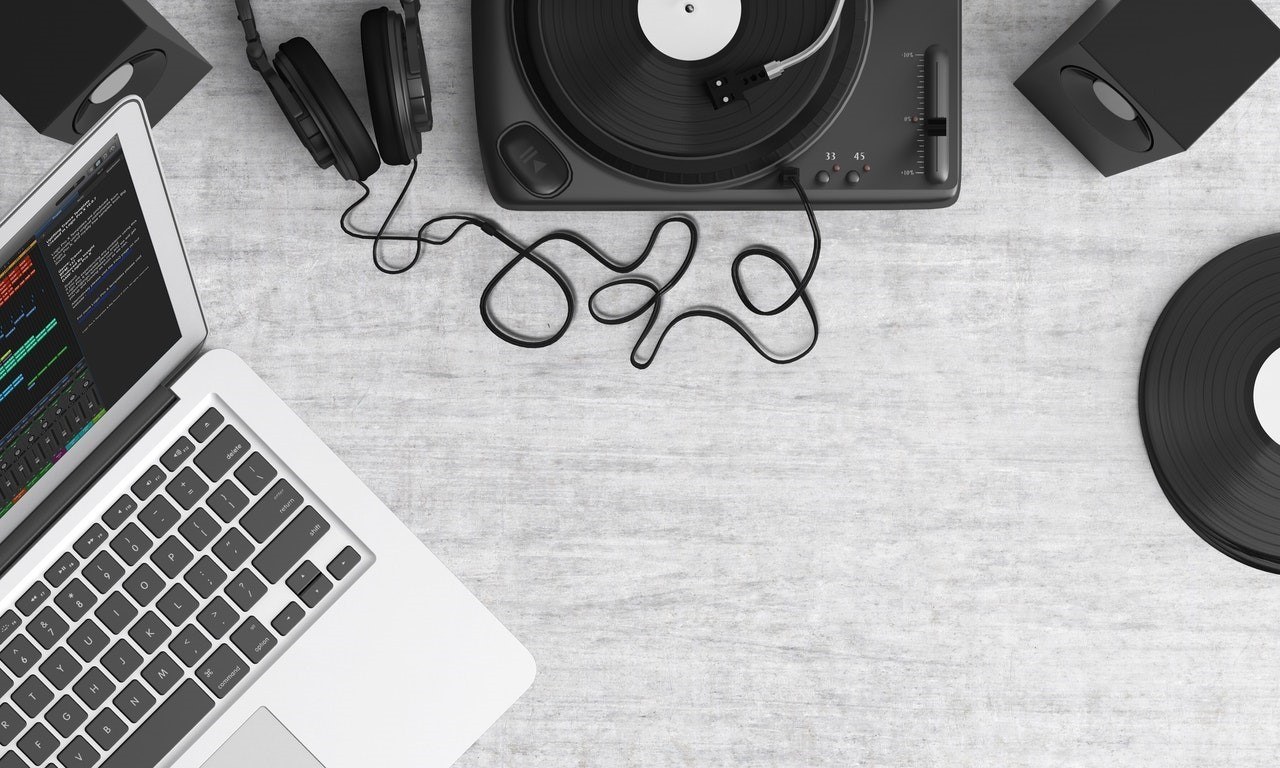
There are a lot of different ways to listen to music. As technology progresses, the list only seems to grow.
Here are a few of the avenues available to you:
Computer
There are several programs that let you listen to music on your computer.
For music that you have already downloaded, you can use various music players such as iTunes, VLC Player, and Windows Media Player to name a few.
Of course, being online allows you to go to various websites to stream music as well.
Depending on the PC or laptop that you have, the quality of the speakers can vary.
Often people prefer to use separate external speakers or headphones to improve the quality.
Portable Music Players
Portable music players let you take your music with you wherever you go. These include mp3 players, mp4 players, and iPods.
Of course, the caveat here is that you need to download the music beforehand and then transfer it to your device.
Along with music, you can also download podcasts, books, and much more onto your player.
There are certain devices that also let you tune into the local radio stations.
Related Links:
Record Players
Record players have experienced a spike in popularity once more.
As more artists and record labels produce music on vinyl, there is a greater number of people stocking up on record players.
The options that are available today range from traditional to digitized, plug-and-play models.
Related Links:
Radios
Yes, despite all of the digital devices that are available today, many people still rely on their radios.
Some of the models rely on older technology while there are also digital versions available.
Not only do these devices let you scan through your favorite radio channels, they also are great for emergencies.
Related Links:
Tablets
Although a little bigger and bulkier, tablets can be used as portable music players too.
They have similar programs as computers and you can download and listen to music on these. Also, you can stream music online, too.
The sound quality from most tablets is quite good, although earphones and headphones are still used with them.
Phones
Phones are quickly overtaking most other devices to claim the top spot.
As smartphones become more versatile and have greater storage memory, many people are transferring their music to their phone libraries.
Furthermore, music apps are also encouraging more people to listen to music on their phones.
Music Apps
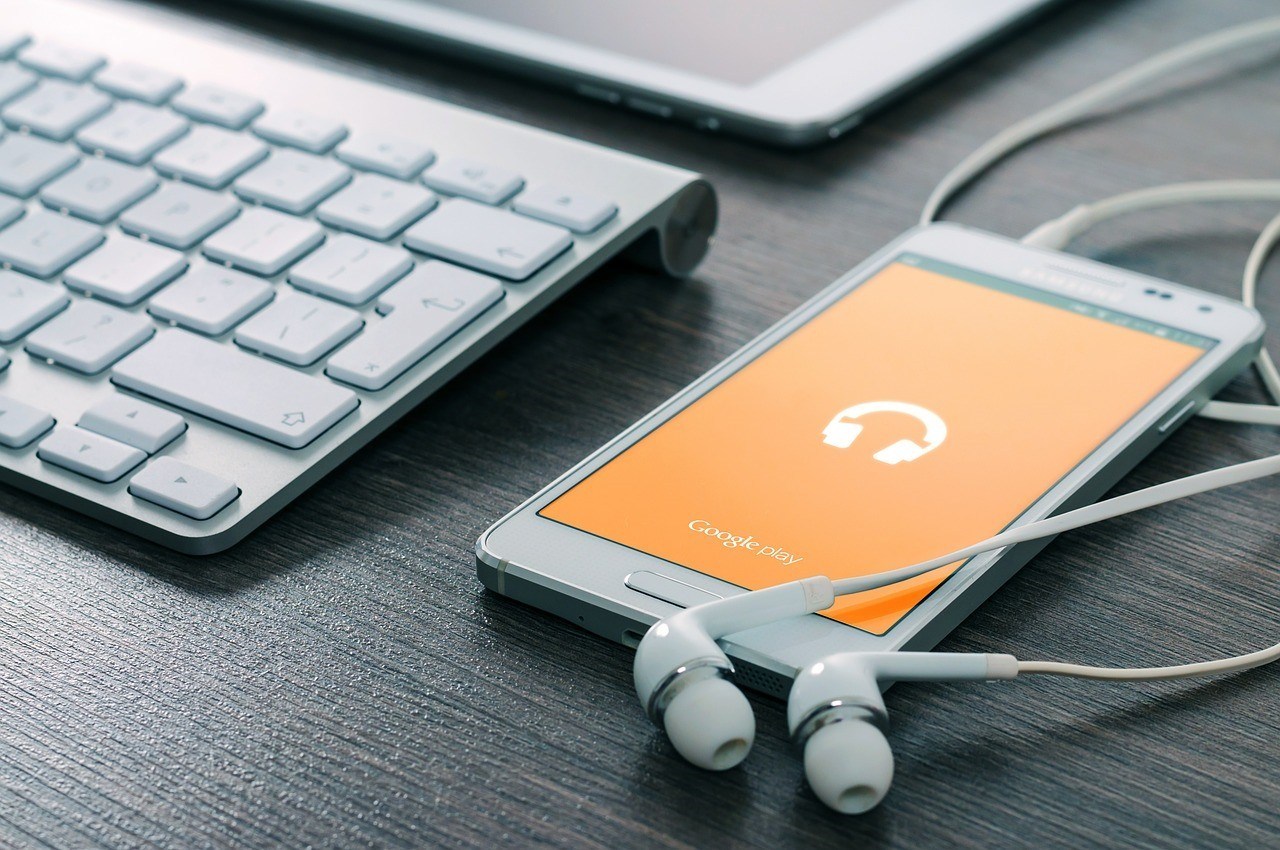
There has been a sudden increase in the number of music apps that are available for download. These make it much easier to get your hands on new music.
Here are some of the most popular ones right now:
Spotify
At the moment, Spotify is undeniably the most well-known music app on the internet, and with good reason.
Signing up with Spotify gives you access to more than 30 million songs. What’s more, you can also check out podcasts, specialized playlists, and even videos.
You can always be on top of the latest releases as it gives you an updated list every time that you log on.
The app lets you discover new music by looking at what you usually listen to.
While many of the services are free, you will need to pay a monthly fee of about $10 if you want to use all of the features.
The app is not available in some South American countries, Asian regions, and European countries.
Spotify is compatible with Mac and Windows operating systems and you can download it onto Apple devices, Android phones, and Windows phones.
Apple Music
Apple Music is also quite favored among music listeners everywhere. This is largely because it is available to users in numerous countries, far more than its competitors.
Altogether, the Apple Music database contains over 40 million songs, complete with playlists, and you can upload your own music and stream it.
The app also offers live radio all day, every day.
While there aren’t too many features with this app, it does let you follow your favorite artists so that you can stay up to date.
There are several plans ranging from $5 to $10 a month, with $15 per month for the family plan.
In addition to the updated iOS versions, Apple Music is also available to Android smartphone users.
Pandora
One of the reasons that Pandora is so beloved is because it is easy to use.
Unlike other apps, it is relatively straightforward and you can simply skip through tracks that you don’t want to listen to.
You can enter your favorite artist and listen to their songs as well as those by similar artists.
It also has the advantage of being compatible with Windows, Mac, and Android operating systems.
You can even get it on Kindle Fire and Nook. There are just a few downsides to Pandora, though.
First, compared to other music apps, there is a limited amount of music.
Also, if you aren’t paying a monthly fee of $5, you are restricted in the number of songs that you can skip.
What’s most limiting about the app is where it is available. Currently, it can only be used in the United States.
YouTube
YouTube is one of the most common ways for people to listen to music and watch videos. This is why the app is quite so popular as well.
One of the benefits of this app is that you can pick and choose the music that you want.
There is an unlimited amount of videos that you can access and you can also save videos to listen to later.
There are also only a handful of countries like China and Pakistan where you can't download YouTube.
But it gets better:
This app is compatible with Mac, Blackberry, and Android operating systems, and users can even use it on gaming consoles.
While it is free to download and use, membership to YouTube Red can cost between $8 and $13.
SoundCloud
SoundCloud is estimated to have one of the largest music databases, offering around 125 million audio tracks to its users.
This is because, in addition to popular and mainstream tracks, SoundCloud also offers up user-created audio.
You can search for various artists, songs, and create and customize your own playlists.
You can also follow other users so that you can stay updated on what they post.
For more mainstream media, you can use the newly introduced SoundCloud Go. The going rate for a subscription is $10 a month.
While SoundCloud is available in most regions, SoundCloud Go is only available in the US, some South American countries, UK, New Zealand, a handful of European countries, and Canada.
iHeartRadio
Unlike many of the other apps, iHeartRadio is completely free, which means there are no further services to unlock – you have access to everything.
Regardless of the type of radio that you like, you will be able to find it on this app. There are over 1500 radio channels to choose from, including talk radio.
There is also a feature that allows you to create a customized channel with around 18 million songs to choose from!
Of course, due to the radio feature, you don’t really get to control the songs that you listen to.
It is, however, only available in United States, Canada, Australia, and New Zealand.
The app is compatible with Android and Mac operating systems.
Google Play Music
The Google Play Music app has more than 35 million streaming songs to choose from.
Free users can create radio-style playlists, while subscribed users have a greater number of options.
The subscription will cost you around $10, while there is a family plan for around $15.
One of the benefits of being a subscribed member is that you also get free access to YouTube Red.
The app is available in around sixty countries, including the US, Canada, New Zealand, and Australia.
It is compatible with iOS and Android devices.
Music Accessories
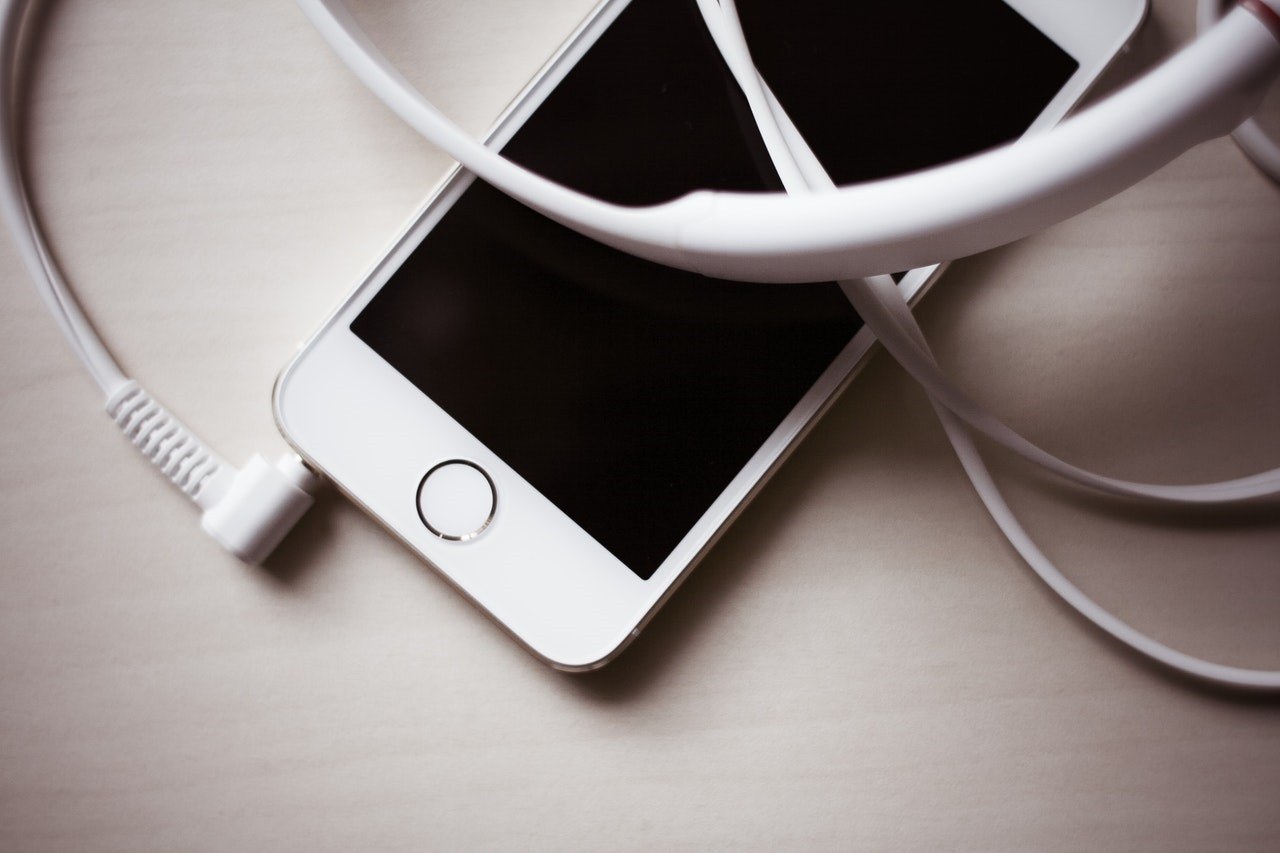
These days, we have personalized the way that we listen to music. This means that most people are very particular about the type of music accessories that they use.
Each accessory can be as unique as someone’s fashion or music taste.
Wired
Wired music accessories are those that rely on cables. This means that you must plug them into a music device or outlet to use them.
The advantages of wired accessories are that they are affordable, hassle-free, and don’t need charging. It is a simple matter of plug and play function.
Wireless
Wireless accessories are becoming more and more popular, particularly as the technology that is involved becomes more advanced.
These don’t have cables and don’t need to be close to the device that connect to them.
This allows for freedom of movement as many of the wireless accessories rely on a Bluetooth connection.
The downside is that you have to charge these accessories independently.
Type of Music Accessories
These are some of the music accessories that are available on the market right now.
First, however, you should understand what each device entails as there is a great deal of confusion about what some of these terms mean.
Earphones, Earbuds, and Headphones
One of the reasons that most people are confused about what these terms entail is because of the manufacturers.
They often use many of these terms interchangeably, so it can be difficult to understand which device is being described.
Earphones and earbuds are quite similar, with the only real variation being how they fit into your ear.
An earphone is placed inside the ear canal, while the earbud rests outside of the ear canal.
Earphones are also sometimes referred to as in-ear headphones, which only complicates matters further.
These days, however, most people use these terms interchangeably when referring to these types of devices.
Headphones, unlike earphones or earbuds, have padded areas that rest over the ears.
Usually a thick, plastic band that goes across your head connects them.
Headphones vs. Headsets
In many ways, headphones and headsets are the same. The only difference is that headsets are equipped with a microphone.
This allows you to speak into it and for someone on the phone, computer, or other external device to hear you.
Headphones
The padded area of the headphones can come in different sizes, depending on the manufacturer and model.
Consumers choose this type of earphones for their great sound quality, which is often better than most other types of earphones.
Headphones also offer a great deal of comfort as well.
These days, there are a lot of options to choose from with headphones. You can opt for the wired version or the wireless models.
These aren’t always ideal for sports or working out, however. You can wear these on the go though, and gamers find them preferable too.
Speakers
Speakers are quite popular amongst gamers or those who want to broadcast their music off PCs or phones.
There are numerous types and designs of speakers, all ranging in quality and price.
While wired speakers are still in use, it is Bluetooth speakers that are fast gaining popularity.
And here's why:
These are quite affordable, produce great sound quality, and are portable.
A type of Bluetooth speaker that is becoming more commonplace is the Pill.
Shaped like its namesake, the pill is completely wireless and capable of producing a lot more sound than its size indicates.
This type of speaker also has the benefit of high-quality sound.
Related Links:
Earbuds
Earbuds are perhaps some of the most versatile music accessories around. This is because there are so many different types to choose from.
Just take the way that you wear them, for instance. You can decide between buds that rest in the ear (in-ear models) or ones that you wear over-the-ear.
There are also varying levels of connectivity. You can select from wired, wireless, and completely wireless.
Now, most wireless options still have wires to connect one earbud to the other.
With completely wireless, however, you have just two individual earbuds to place in the ear.
You can also further categorize earbuds as sports earbuds, which facilitate movement. You'll often find these protected against sweat, dirt, and moisture.
The noise canceling variety blocks out any ambient noise and allows you to focus on the music.
Then there are those that let some noise in, which joggers can use in high-risk areas.
Related Links:
Best Way to Store Music Digitally

Most people like having their favorite music right there at their fingertips. Also, streaming services can be problematic to use on a consistent basis.
First, you have to have a reliable internet connection at all times. There is also the matter of eating through your data plan quite fast.
This is why everyone downloads and stores their favorite tunes on their computer, phone, or portable music player.
When it comes to storing your music digitally, there are three things that you need to be concerned with – format, quality, and size.
Here is what you need to know about doing it the right way:
Where You Can Store Your Music
The following are the most common places to store music:
SD Cards
These are incredibly small flash memory cards. Despite their compact size, they are actually capable of holding a great deal of additional storage for your music.
These are great for when you want your music on the go and your personal device such as your phone just doesn’t have enough space.
Portable Hard Drives
These can include thumb or flash drives. They are larger than the SD cards but you can connect them with various devices such as laptops and PCs.
The benefit of these memory banks is that they can store an incredible amount of information, sometimes up to 1TB of songs.
Cloud Storage
Cloud storage is essentially storing your songs on the internet. You should be able to store about 5 to 15GB for free, depending on the service.
If you want to store any more, you will need to pay an additional amount.
The advantage of cloud storage is that you can access your songs on any device that you can connect to the internet.
File Format vs. Quality
One of the first things that you will need to decide when choosing the format for your music is whether you want to optimize space or quality.
It's simple:
If you have limited storage but want to have a greater number of songs, then you will need to have quite significantly compressed files.
When this happens, there is a loss of quality, although this isn’t always noticeable.
If you wish to use a ‘lossy’ format, you'll find that mp3 and AAC are quite efficient and widely supported as well.
If you are not willing to compromise on the quality of your sound, then you will need to look at lossless formats.
Some formats like WAV and AIFF don’t compress their music so that the quality remains intact.
Due to the requirement for an enormous amount of space, however, you might want to reserve these formats for when your audio needs editing.
If you want to save some space but don’t want to lose out on the quality, then FLAC and APE are what you need.
While they both offer the same level of quality, FLAC is typically more accepted than APE.
